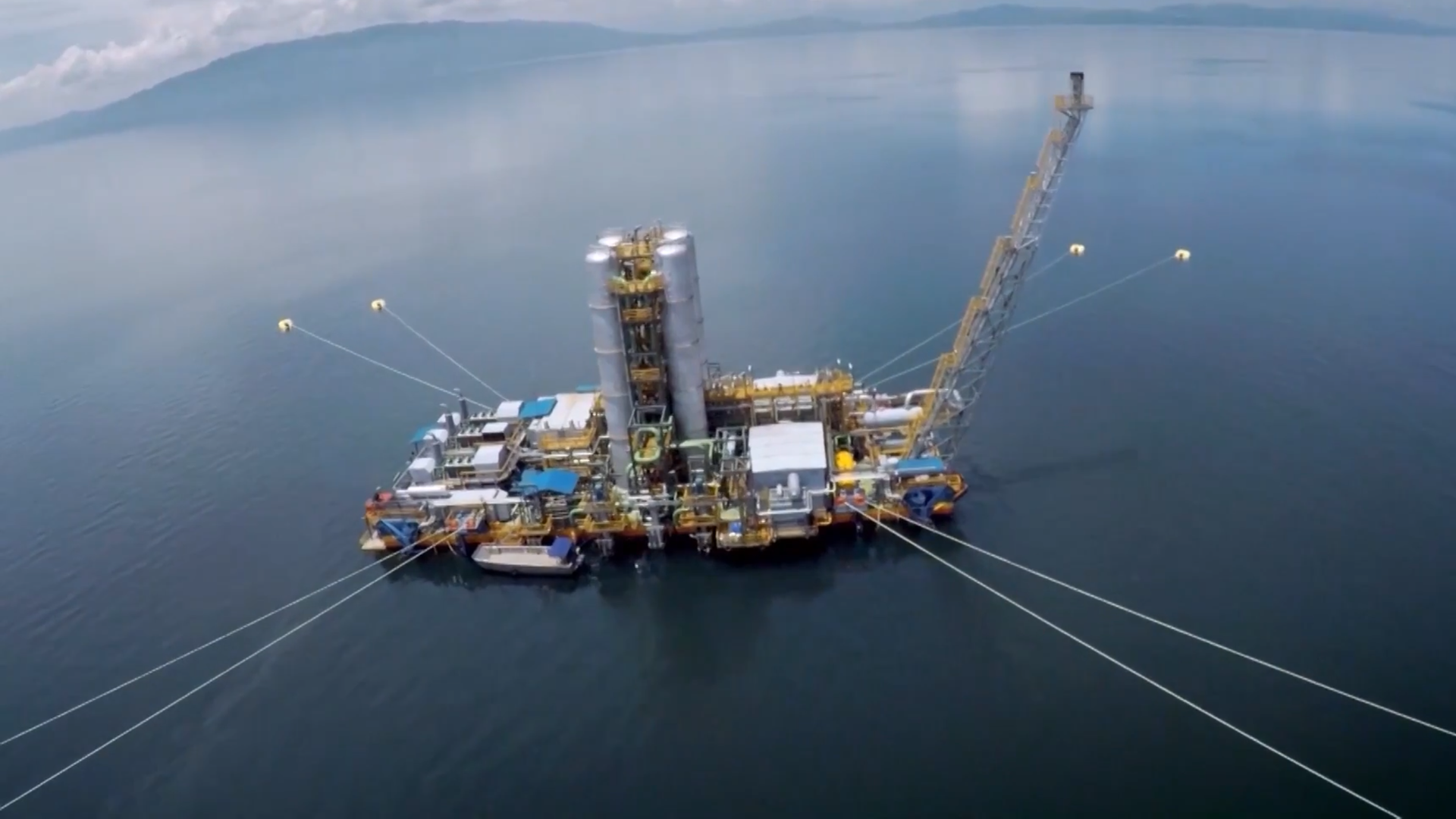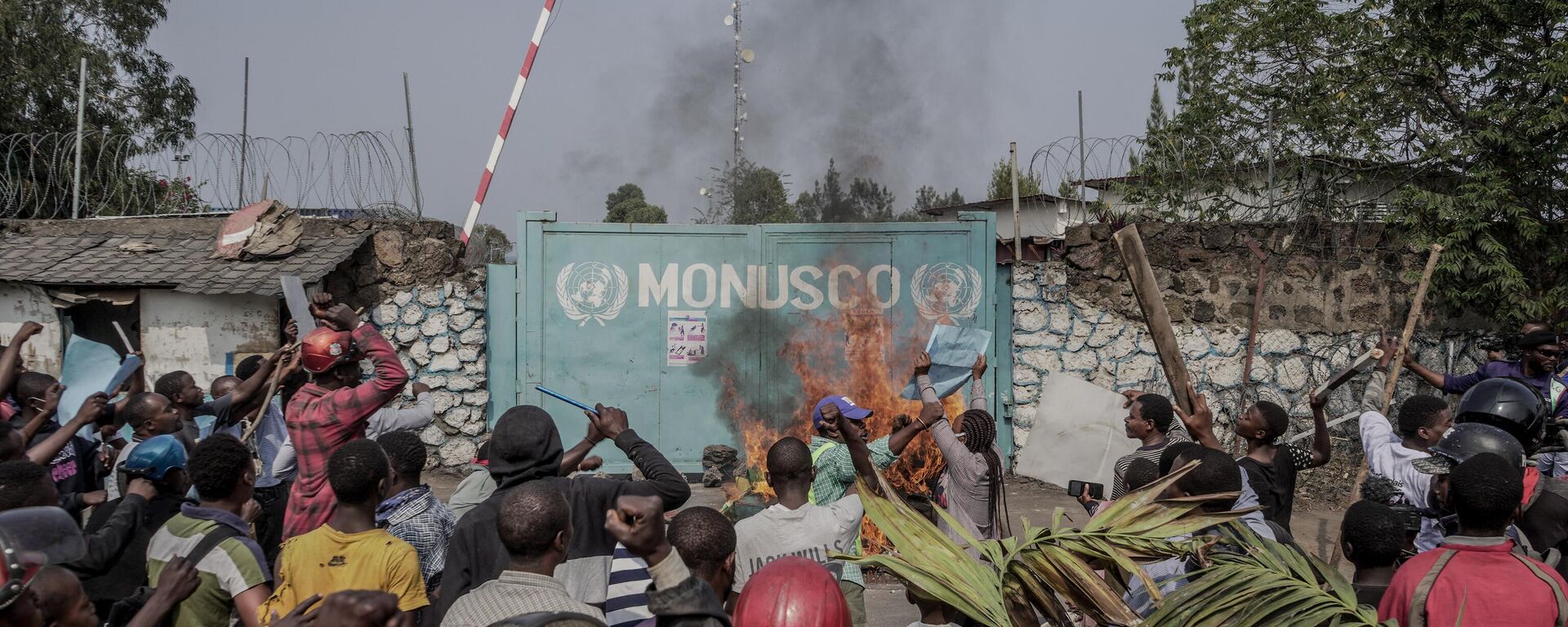https://sputnikglobe.com/20220728/rwanda-to-produce-methane-compressed-natural-gas-from-mysterious-gas-leaking-lake-kivu-1097905457.html
Rwanda to Produce Methane, Compressed Natural Gas From Mysterious Gas-Leaking Lake Kivu
Rwanda to Produce Methane, Compressed Natural Gas From Mysterious Gas-Leaking Lake Kivu
Sputnik International
Rwanda has long considered building a new facility on Lake Kivu to extract the mysterious lake’s massive underwater methane deposits. According to the... 28.07.2022, Sputnik International
2022-07-28T21:56+0000
2022-07-28T21:56+0000
2022-11-23T11:36+0000
rwanda
cng
methane
africa
https://cdn1.img.sputnikglobe.com/img/07e6/07/1c/1097905312_0:150:2294:1440_1920x0_80_0_0_4f53497405269a16ca508fe34e47c69f.png
The Lake Kivu Gas Project is charging ahead, promising to complete an offshore gas extraction facility, onshore gas processing facility, and compression plants for compression natural gas (CNG) by the end of 2023.“After extracting the gas, it goes through a series of verification, such that we can attain the natural gas which is the CNG gas we need. The gas will be brought via pipes, it will come below the lake and onshore,” he added.Kigali and Gasmeth inked the $400 million deal in 2019, but the project was postponed by a number of factors, not the least of which was the COVID-19 pandemic. The deal provides Gasmeth with a 25-year concession to extract 40 million standard cubic feet of CNG per day.However, the effort is not without controversy: methane is a highly potent greenhouse gas, about 80 times more effective at trapping solar heat than carbon dioxide. In an era of big promises to sharply curb climate change-exacerbating emissions, markets for CNG are likely to wane in the coming years.Ironically, an important conference amending the Montreal Protocol on ending the use of chemicals that deplete the ozone layer was held in Kigali in 2016.Separately earlier this month, the Rwandan government signed off on a 100 million Rwf project to explore extracting urea, an important fertilizer ingredient, from Lake Kivu’s gas deposits.Electricity is also generated using methane harvested from the lake.Volcanic hot springs under Lake Kivu have vented a vast volume of methane and carbon dioxide into the lake, most of which stays contained deep underwater. As a result, the lake is feared to be capable of a limnic eruption, or lake overturn, in which the gases contained underneath violently force their way to the surface. When Cameroon’s Lake Nyos had a limnic eruption in 1986, it killed 1,700 people and 3,000 livestock - some by the tsunami the explosion generated, others by asphyxiation as carbon dioxide silently displaced the air near the lake.Rwanda splits Lake Kivu with its western neighbor, the Democratic Republic of the Congo (DRC), and the two nations jointly harvest its resources. However, the conflict in DRC’s North Kivu Province between rival militant groups, which both Kigali and Kinshasa accuse the other of surreptitiously supporting, could make further cooperation difficult. The two nations have all but severed normal relations, despite a peace deal in Luanda, and canceled or put on hold all joint economic projects.
https://sputnikglobe.com/20220725/video-protesters-loot-un-base-in-dr-congos-conflict-torn-north-kivu-amid-rwanda-standoff-1097790963.html
rwanda
africa
Sputnik International
feedback@sputniknews.com
+74956456601
MIA „Rosiya Segodnya“
2022
Sputnik International
feedback@sputniknews.com
+74956456601
MIA „Rosiya Segodnya“
News
en_EN
Sputnik International
feedback@sputniknews.com
+74956456601
MIA „Rosiya Segodnya“
Sputnik International
feedback@sputniknews.com
+74956456601
MIA „Rosiya Segodnya“
rwanda, cng, methane
Rwanda to Produce Methane, Compressed Natural Gas From Mysterious Gas-Leaking Lake Kivu
21:56 GMT 28.07.2022 (Updated: 11:36 GMT 23.11.2022) Rwanda has long considered building a new facility on Lake Kivu to extract the mysterious lake’s massive underwater methane deposits. According to the project’s manager, the gas could begin to flow by the end of next year.
The Lake Kivu Gas Project is charging ahead, promising to complete an offshore gas extraction facility, onshore gas processing facility, and compression plants for compression natural gas (CNG) by the end of 2023.
"It is going to be constructed in two phases, the first phase is going to be composed on one badge, the location where we are standing now is going to be where the badge is going to be assembled, and then after it is going to be taken where the gas is going to be extracted, which is approximately 30-35 km from here,” Steven Manzi, the construction manager for Gasmeth, the Rwandan firm behind the project, told Africa News on Tuesday.
“After extracting the gas, it goes through a series of verification, such that we can attain the natural gas which is the CNG gas we need. The gas will be brought via pipes, it will come below the lake and onshore,” he added.
Kigali and Gasmeth inked the $400 million deal in 2019, but the project was postponed by a number of factors, not the least of which was the COVID-19 pandemic. The deal provides Gasmeth with a 25-year concession to extract 40 million standard cubic feet of CNG per day.
The gas will be useful for both domestic consumption and foreign export, especially as prices continue to rise globally. In Rwanda, the price of a 12-kilogram cylinder of cooking gas has increased by 50% since 2020, to roughly 18,500 Rwandan Francs ($18) - almost half a month’s salary for the
average rural Rwandan.
However, the effort is not without controversy: methane is a
highly potent greenhouse gas, about 80 times more effective at trapping solar heat than carbon dioxide. In an era of big promises to sharply curb climate change-exacerbating emissions, markets for CNG are likely to wane in the coming years.
Ironically,
an important conference amending the Montreal Protocol on ending the use of chemicals that deplete the ozone layer was held in Kigali in 2016.
Separately earlier this month, the Rwandan government signed off on a 100 million Rwf project to explore extracting urea, an important fertilizer ingredient, from Lake Kivu’s gas deposits.
Charles Bucagu, the Deputy Director General in charge of Agriculture Development at the Rwanda Agriculture and Animal Resources Development (RAB), told Rwanda’s New Times that Western sanctions on Russia due to its special operation in Ukraine have cut into Russian fertilizer exports, strangling the central African country’s supply, requiring Rwanda to look for new sources.
Electricity is also generated using methane harvested from the lake.
Volcanic hot springs under Lake Kivu have vented a vast volume of methane and carbon dioxide into the lake, most of which stays contained deep underwater. As a result, the lake is feared to be capable of a limnic eruption, or lake overturn, in which the gases contained underneath violently force their way to the surface. When Cameroon’s
Lake Nyos had a limnic eruption in 1986, it killed 1,700 people and 3,000 livestock - some by the tsunami the explosion generated, others by asphyxiation as carbon dioxide silently displaced the air near the lake.
Around Lake Kivu, smaller carbon dioxide leaks from volcanic fissures kill several people by asphyxiation every year - a phenomenon
called “mazuku” or “evil wind” in Swahili.
Rwanda splits Lake Kivu with its western neighbor, the Democratic Republic of the Congo (DRC), and the two nations jointly harvest its resources. However, the
conflict in DRC’s North Kivu Province between rival militant groups, which both Kigali and Kinshasa accuse the other of surreptitiously supporting, could make further cooperation difficult. The two nations have all but severed normal relations, despite a peace deal in Luanda, and canceled or put on hold all joint economic projects.





